Ditapis dengan
Student Centered Leadership
This book offers a timely and thoughtful resource for school leaders who want to turn their ideals into action. Written by educational leadership expert Viviane Robinson, the book shows leaders how they can make a bigger difference to the quality of teaching and learning in their school and ultimately improve their student's performance. This book also is based not on fad or fashion but on the…
- Edisi
- -
- ISBN/ISSN
- 978118090275
- Deskripsi Fisik
- xi + 167 hlm; 15 x 23 cm
- Judul Seri
- -
- No. Panggil
- 158.4 ROB s
The Inspiration of Tao Zhu-gong : Modern Business Lessons from an Ancient Past
This book discusses the 12 business principles of Tao Zhu-gong and relates them to today's corporate setting. They state 12 vital abilities that one will need in order to succeed in business. Ranging from handling customers and employees to managing a company and its products to making business decisions, the principles cover most of the areas necessary for a business to develop. The 12 princip…
- Edisi
- -
- ISBN/ISSN
- 0130605654
- Deskripsi Fisik
- ix + 311 hlm; 15 x 23.5 cm
- Judul Seri
- -
- No. Panggil
- 174.4 CHO t
Linking leadership to Student Learning
This book clearly shows how to school leadership improves student achievement. The book based on an ambitious five-year study on educational leadership that was sponsored by The Wallace Foundation. The authors studied 43 districts, across 9 states and 180 elementary, middle, and secondary schools. In this book, the author report on what they found. The results within will have significant impli…
- Edisi
- -
- ISBN/ISSN
- 9780470623312
- Deskripsi Fisik
- xxiii + 275 hlm; 18 x 23cm
- Judul Seri
- -
- No. Panggil
- 158.1 LEI l
The 21 Irreffutable Laws of Leadership Tested by Time = 21 Hukum Kepemimpinan…
Anda bisa menjadi pemimpin. Lebih dari lima juta kopi buku karya John Maxwell, 21 Hukum Kepemimpinan Sejati, laris terjual, memberdayakan pria wanita dalam keterampilan memimpin. Dalam 21 Hukum Kepemimpinan Sejati Teruji oleh Waktu, Jim Garlow menelaah bagaimana orang biasa sepanjang zaman telah menggunakan ke-21 hukum ini untuk menjadi pemimpin yang paling besar kuasanya, disegani, dan berpeng…
- Edisi
- -
- ISBN/ISSN
- -
- Deskripsi Fisik
- 353 hlm; 15.5 x 24 cm
- Judul Seri
- -
- No. Panggil
- 158.1 GAR t
E-book Monkey Trouble : The Scandal of Posthumanism
The human is a source of trouble for posthumanism. Committed to dis-turbing the opposition between human and nonhuman, posthumanist theory has tended to sideline the human from the scene of its theoretical engagements with otherness. The human has become akin to the “Invisible Gorilla” made famous by psychologists Christopher Chabris and Daniel Simons. Seeking to establish …
- Edisi
- -
- ISBN/ISSN
- 9780823277797
- Deskripsi Fisik
- 168 hlm
- Judul Seri
- -
- No. Panggil
- 111 PET m
E-book The Discovery of Anxiousness
The subject of my book is a Portuguese Cistercian nun, Joana de Jesus (1617–1681),whowroteanautobiographicalmysticaltext.However,themostfamousPortuguesenun is still Mariana Alcoforado (1640–1723),probably the fictional author of theLet-tresPortugaises.1Thisbook–anardentcorrespondencebetweenacloisterednunanda French aristocrat – had wide appeal in the European literary scene of its time.…
- Edisi
- -
- ISBN/ISSN
- 9783839465325
- Deskripsi Fisik
- 277 hlm
- Judul Seri
- -
- No. Panggil
- 102 SER t
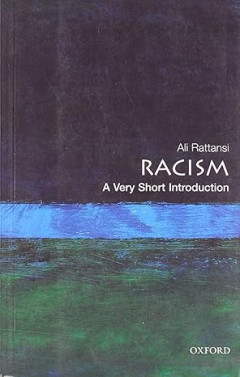
E-book Racism: A Very Short Introduction
From subtle discrimination in everyday life, to horrors like lynching in the Old South, cultural imperialism, and "ethnic cleansing", racism exists in many different forms, in almost every facet of society. Despite civil rights movements and other attempts at progress, racial prejudices and stereotypes remain deeply embedded in Western culture. Racism takes a frank and objective look at why the…
- Edisi
- -
- ISBN/ISSN
- 9780192805904
- Deskripsi Fisik
- 209 halaman
- Judul Seri
- -
- No. Panggil
- 170.01 RAT p
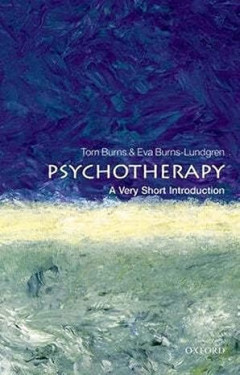
E-book Psychotherapy: A Very Short Introduction
Psychotherapy and counselling are now widely available to help people overcome emotional and psychological difficulties in their lives. They involve spending time with a professional in an emotionally safe and structured relationship to explore and express the issues that cause distress and difficulty, such as long term self-doubts, relationship problems, or the impact of a trauma or crisis. As…
- Edisi
- -
- ISBN/ISSN
- 9780199689361
- Deskripsi Fisik
- 346 halaman.
- Judul Seri
- -
- No. Panggil
- 131 BUR p

Ebook Privacy: A Very Short Introduction
It is widely recognized that our privacy is under threat. Electronic surveillance, biometrics, CCTV, ID cards, RFID codes, online security, encryption, the interception of email, the monitoring of employees--all raise fundamental questions about privacy. Legal expert Raymond Wacks here provides a compact introduction to this complex and controversial concept. He explores the tension between fre…
- Edisi
- -
- ISBN/ISSN
- 9780199556533
- Deskripsi Fisik
- 176 halaman
- Judul Seri
- -
- No. Panggil
- 170.01 WAC p
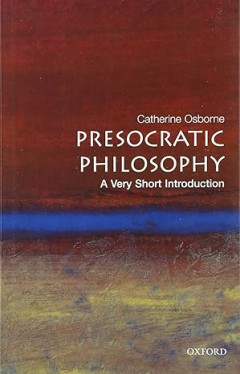
E-book Presocratic Philosophy: A Very Short Introduction
Generations of philosophers, both ancient and modern, have traced their inspiration back to the Presocratics. Part of the fascination stems from the fact that little of what they wrote survives. Here Osborne invites her readers to dip their toes into the fragmentary remains of thinkers from Thales to Pythagoras, Heraclitus to Protagoras, and to try to reconstruct the moves that they were making…
- Edisi
- -
- ISBN/ISSN
- 9780192840943
- Deskripsi Fisik
- 176 pages
- Judul Seri
- -
- No. Panggil
- 182 OSB p
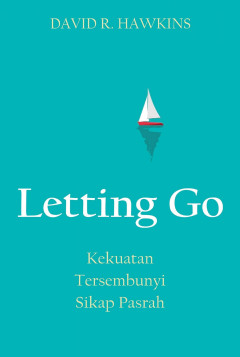
Letting Go (Kekuatan Tersembunyi Sikap Pasrah)
Letting Go adalah sebuah buku monumental yang menjelaskan cara paling efektif untuk menyirnakan berbagai hambatan batin menuju pencerahan. Setelah didera puluhan penyakit kronis yang tak tersembuhkan oleh metode medis, Dr. Hawkins memasrahkan semua penyakitnya hingga satu per satu sirna. Hampir semua penyakit fisik dan mental disebabkan oleh emosi-emosi negatif yang terpendam di alam bawah-sada…
- Edisi
- Cet. 6
- ISBN/ISSN
- 9786026799548
- Deskripsi Fisik
- 424 hlml; 1,5 x 20 cm
- Judul Seri
- -
- No. Panggil
- 155.25 HAW l
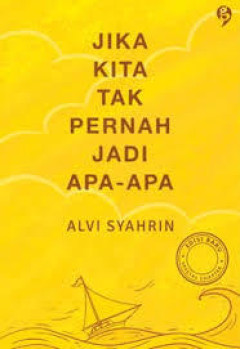
Jika Kita tak Pernah Jadi apa-apa
SECUPLIK CERITA UNTUKMU 1. Tapi, aku nggak tahu mau jadi apa 2. Pengin cepat-cepat lulus aja 3. Mengapa pendidikan di Indonesia begini banget? 4. Hanya murid rata-rata yang tak penting 5. Aku cuma pengin orang tuaku bangga 6. Salah jurusan: haruskah aku pindah? 7. Surat untuk anak rantau 8. Hari wisuda dan orang tua yang berharap 9. Pengusaha vs Karyawan vs PNS: mending mana? 10. Feno…
- Edisi
- Ed. 2 Cet. 2
- ISBN/ISSN
- 9789797809485
- Deskripsi Fisik
- xii, 244 hlm; 13 x 19 cm
- Judul Seri
- -
- No. Panggil
- 155.25 ALV j
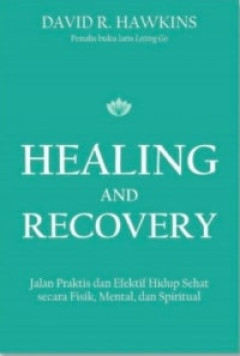
Healing and Recovery
Masyarakat kita hidup dengan stres, kecemasan, ketakutan, keresahan, rasa sakit, penderitaan, dan depresi. Alkoholisme dan kecanduan lainnya, obesitas, masalah seksual, masalah penuaan, kanker, hingga penyakit-penyakit baru yang dikaitkan dengan bakteri dan virus tertentu diberitakan oleh media sepanjang waktu. Umat manusia secara umum hanya memiliki sedikit informasi tentang bagaimana menghada…
- Edisi
- Cet. 3
- ISBN/ISSN
- 9786026799562
- Deskripsi Fisik
- 504 hlm; 13,5 x 20 cm
- Judul Seri
- -
- No. Panggil
- 155.25 HAW h

E-book The Time of Turath: Authenticity and Temporality in Contemporary Arab …
This study argues for a new view of contemporary Arab thought by analyzing the idea of time that underlies key discussions over Arab heritage (tur?th). Focusing on three authors, it shows how their work was shaped by a linear temporality and how they break with a common understanding of Arab thought by critiquing its temporal basis. This analysis leads to a richer engagement with contemporary A…
- Edisi
- -
- ISBN/ISSN
- 9783110984286
- Deskripsi Fisik
- -
- Judul Seri
- -
- No. Panggil
- 181.92 VIE t
Segala-galanya Ambyar
Kita hidup dalam zaman yang menarik. Secara material, segalanya tampak sangat baik melebihi zaman-zaman sebelumnya, Meski begitu, entah mengapa segala-galanya tampak kacau balau dan benar-benar ambyar. Apa yang terjadi? Jika ada satu orang yang bisa membantu kita mengenali bencana yang terjadi saat ini dan ikut membantu memberesi, salah satunya adalah Mark Manson. Dalam buku ini, Manson membent…
- Edisi
- -
- ISBN/ISSN
- 9786020522838
- Deskripsi Fisik
- 311 hlm; 14 x 21 cm
- Judul Seri
- -
- No. Panggil
- 152.4 MAN s
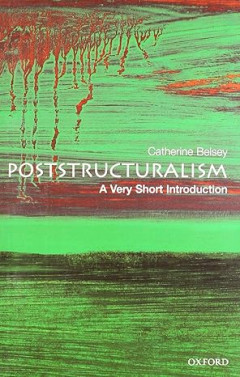
E-book Poststructuralism: A Very Short Introduction
Poststructuralism changes the way we understand the relations between human beings, their culture, and the world. Following a brief account of the historical relationship between structuralism and poststructuralism, this Very Short Introduction traces the key arguments that have led poststructuralists to challenge traditional theories of language and culture. While the author discusses such wel…
- Edisi
- -
- ISBN/ISSN
- 9780192801807
- Deskripsi Fisik
- 132 halaman.
- Judul Seri
- -
- No. Panggil
- 101 BEL p
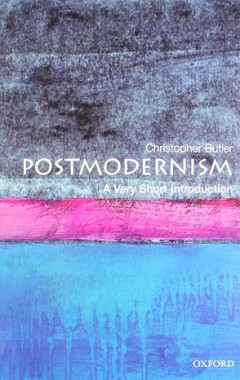
E-book Postmodernism: A Very Short Introduction
Postmodernism has become the buzzword of contemporary society over the last decade. But how can it be defined? In this highly readable introduction the mysteries of this most elusive of concepts are unraveled, casting a critical light upon the way we live now, from the politicizing of museum culture to the cult of the politically correct. The key postmodernist ideas are explored and challenged,…
- Edisi
- -
- ISBN/ISSN
- 9780192802392
- Deskripsi Fisik
- 152 halaman
- Judul Seri
- -
- No. Panggil
- 149.97
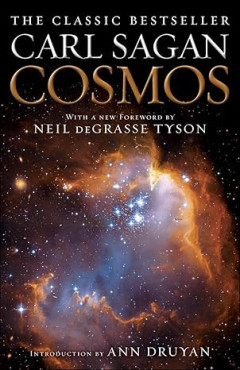
E-book Cosmos
In clear-eyed prose, Carl Sagan reveals a jewel-like blue world inhabited by a life form that is just beginning to discover its own identity and to venture into the vast ocean of space. Featuring full-color illustrations, Cosmos retraces the fourteen billion years of cosmic evolution that have transformed matter into consciousness, exploring such topics as the origin of life, the human brain, E…
- Edisi
- -
- ISBN/ISSN
- 9780307800985
- Deskripsi Fisik
- 358 halaman, ilus.
- Judul Seri
- -
- No. Panggil
- 113 SAG c
E-book Psychological Abuse : A Discussion Paper
This paper is a review of research on psychological abuse in interpersonal and family relationships including in settings such as long-term care residences. There is no simple definition of psychological abuse. Generally, researchers and front line service providers define it as the systemic destruction of a person’s self-esteem and/or sense of safety, often occurring in relationships where t…
- Edisi
- -
- ISBN/ISSN
- 9780662489948
- Deskripsi Fisik
- 37 hlm
- Judul Seri
- -
- No. Panggil
- 150 DOH p

E-book Ars Electronica 2023 Festival for Art, Technology, and Society: Exhibi…
Towards a New Social Contract Ars Electronica 2023 is dedicated to the complex questions of truth and the concept of ownership in this digital age. In doing so, the festival navigates the central questions of our time. The focus is on how our perception of “authentic” and “original” is being transformed and whether truth can be owned, and how this relates to digitalization and the rapid…
- Edisi
- -
- ISBN/ISSN
- 9783775756020
- Deskripsi Fisik
- 434 halaman, ilus.
- Judul Seri
- -
- No. Panggil
- 170.0 STO a
E-book The Muses of Truth and Transformation
The key event in this first part of the tale occurs when the old fisherman innocently opens the sealed flask he found, and the Djinn materializes from the bottle, and threatens to kill the old man. How are we to interpret this opening event?If this were someone’s dream, a common psychological interpretation would be that the Djinn, imprisoned in the bottle, represents a repressed, unconscious…
- Edisi
- -
- ISBN/ISSN
- 9781003471028
- Deskripsi Fisik
- 184 hlm
- Judul Seri
- -
- No. Panggil
- 150.1 CHI t
E-book Thirteen Fundamental Psychological Needs
Although individuals may have different goals and wishes on the surface, deep down we all want the same things. Our fundamental needs are universal: Regardless of culture, age, and lifestyle, everyone ultimately has the same set of needs. Needs are the basic requirements for our functioning and the nutriments for our well-being and advancement. We can only fully develop and flourish if all our …
- Edisi
- -
- ISBN/ISSN
- 9789463841856
- Deskripsi Fisik
- -
- Judul Seri
- -
- No. Panggil
- 150 DES t
E-book Reiner Schurmann and Poetics of Politics
To begin with a thinker who remained always attuned to the du-plicitous nature of beginning requires candor. There is a thetic dimension to every beginning, and we will do well not to deny it here. Rather, let us begin by attending to the things Reiner Schürmann himself said about beginning: “A starting point,” he wrote, “that neither abandons ordinary experience nor t…
- Edisi
- -
- ISBN/ISSN
- 9781947447738
- Deskripsi Fisik
- 178 hlm
- Judul Seri
- -
- No. Panggil
- 189 LON r
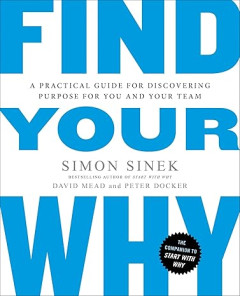
E-book Find Your Why: A Practical Guide for Discovering Purpose for You and Y…
Now Find Your Why picks up where Start With Why left off. It shows you how to apply Simon Sinek’s powerful insights so that you can find more inspiration at work -- and in turn inspire those around you. I believe fulfillment is a right and not a privilege. We are all entitled to wake up in the morning inspired to go to work, feel safe when we’re there and return home fulfilled at the en…
- Edisi
- -
- ISBN/ISSN
- 9780143111726
- Deskripsi Fisik
- 154 halaman, ilus.
- Judul Seri
- -
- No. Panggil
- 152.4 SIN f
E-book The Land Is Our Community : Aldo Leopold’s Environmental Ethic for t…
his is a book about Aldo Leopold’s land ethic,1 a view he developed over the course of his lifetime, a view that was informed by his experiences as a hunter, forester, wildlife manager, ecologist, con-servationist, and professor. It culminated in the essay “The Land Ethic” in A Sand County Almanac, published posthumously after his untimely death at age sixty-one in 1948. It has been extre…
- Edisi
- -
- ISBN/ISSN
- 9780226834474
- Deskripsi Fisik
- 198 hlm
- Judul Seri
- -
- No. Panggil
- 155.9 MIL t
E-book Aristotle and the Ontology of St. Bonaventure
The claim “what we know is what exists” appears, at first glance, to be quite an obvious statement – we know dogs and horses and so it seems obvious that dogs and horses exist. However, upon further reflection, it rather seems that what is most properly the object of our knowledge is not these particular dogs and horses themselves, but something that is universal – what Plato called a �…
- Edisi
- -
- ISBN/ISSN
- 9789461664884
- Deskripsi Fisik
- 227 hlm
- Judul Seri
- -
- No. Panggil
- 189 VAN a
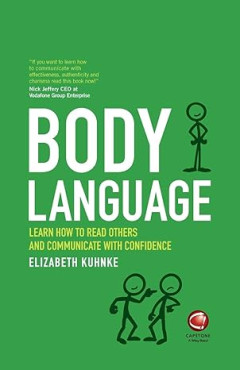
E-book Body Language: Learn How to Read Others and Communicate with Confidence
What does your body language say about you? From strangers on the street, to your closest friends and family – even if you're not speaking, you're saying a lot with your body. Body Language explores the way we use our bodies to communicate, the way we hold ourselves, the way we sit, stand, and point our hands, feet and eyes can all reveal how we are feeling in any given situation. This …
- Edisi
- -
- ISBN/ISSN
- 9780857087041
- Deskripsi Fisik
- 211 halaman
- Judul Seri
- -
- No. Panggil
- 153.6 KUH b

E-book Ethics 101: From Altruism and Utilitarianism to Bioethics and Politica…
Ethics 101 offers an exciting look into the history of moral principles that dictate human behavior. Unlike traditional textbooks that overwhelm, this easy-to-read guide presents the key concepts of ethics in fun, straightforward lessons and exercises featuring only the most important facts, theories, and ideas. Ethics 101 includes unique, accessible elements such as: -Explanations of the ma…
- Edisi
- -
- ISBN/ISSN
- 9781507204931
- Deskripsi Fisik
- 256 halaman, ilus.
- Judul Seri
- -
- No. Panggil
- 170.0 BOO e
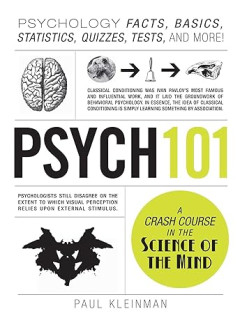
E-book Psych 101: Psychology Facts, Basics, Statistics, Tests, and More!
A hands-on approach to exploring the human mind Too often, textbooks turn the noteworthy theories, principles, and experiments of psychology into tedious discourse that even Freud would want to repress. Psych 101 cuts out the boring details and statistics, and instead, gives you a lesson in psychology that keeps you engaged - and your synapses firing. From personality quizzes and the Rors…
- Edisi
- -
- ISBN/ISSN
- 9781440543906
- Deskripsi Fisik
- 255 halaman, ilus.
- Judul Seri
- -
- No. Panggil
- 150.1 KLE p
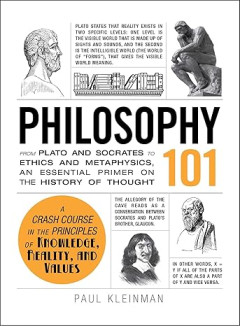
E-book Philosophy 101: From Plato and Socrates to Ethics and Metaphysics, an …
Too often, textbooks turn the noteworthy theories, principles, and figures of philosophy into tedious discourse that even Plato would reject. Philosophy 101 cuts out the boring details and exhausting philosophical methodology, and instead, gives you a lesson in philosophy that keeps you engaged as you explore the fascinating history of human thought and inquisition. From Aristotle and Heideg…
- Edisi
- -
- ISBN/ISSN
- 9781440567674
- Deskripsi Fisik
- 364 halaman, ilus.
- Judul Seri
- -
- No. Panggil
- 101 KLE p

E-book The Wiley Handbook on the Cognitive Neuroscience of Learning
The Wiley Handbook on the Cognitive Neuroscience of Learning charts the evolution of associative analysis and the neuroscientific study of behavior as parallel approaches to understanding how the brain learns that both challenge and inform each other. - Covers a broad range of topics while maintaining an overarching integrative approach - Includes contributions from leading authorities in t…
- Edisi
- First Edition
- ISBN/ISSN
- 9781118650943
- Deskripsi Fisik
- 612 halaman, ilus.
- Judul Seri
- -
- No. Panggil
- 153.1 MUR t
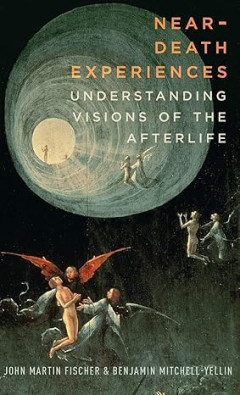
E-book Near-Death Experiences: Understanding Visions of the Afterlife
Near-death experiences offer a glimpse not only into the nature of death but also into the meaning of life. They are not only useful tools to aid in the human quest to understand death but are also deeply meaningful, transformative experiences for the people who have them. In a unique contribution to the growing and popular literature on the subject, philosophers John Martin Fischer and Benj…
- Edisi
- -
- ISBN/ISSN
- 9780190466602
- Deskripsi Fisik
- 209 halaman
- Judul Seri
- -
- No. Panggil
- 133.901 FIS n
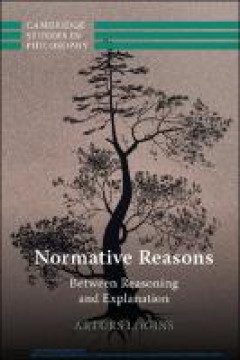
E-book Normative Reasons: Between Reasoning and Explanation
Reasons matter greatly to us in both ordinary and theoretical contexts, being connected to two fundamental normative concerns: figuring out what we should do and what attitudes to have, and understanding the duties and responsibilities that apply to us. This book introduces and critiques most of the contemporary theories of normative reasons – considerations that speak in favour of an action,…
- Edisi
- -
- ISBN/ISSN
- 9781009076012
- Deskripsi Fisik
- 253 halaman, ilus.
- Judul Seri
- -
- No. Panggil
- 153.4 LOG n
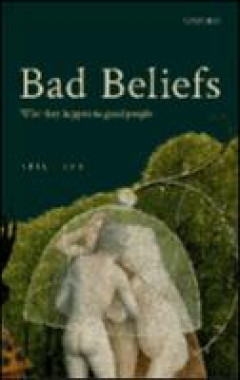
E-book Bad Beliefs: Why They Happen to Good People
Why do people come to reject climate science or the safety and efficacy of vaccines, in defiance of the scientific consensus? A popular view explains bad beliefs like these as resulting from a range of biases that together ensure that human beings fall short of being genuinely rational animals. This book presents an alternative account. It argues that bad beliefs arise from genuinely rational p…
- Edisi
- -
- ISBN/ISSN
- 9780192895325
- Deskripsi Fisik
- 211 halaman
- Judul Seri
- -
- No. Panggil
- 170 LEV b
E-book Scepticism and Belief in English Witchcraft Drama, 1538–1681
Witchcraft is often thought of, wrongly, as a thing of the past. In fact, it continues to be taken seriously by people all over the world. But because the subject of this study is, specifically, early modern witchcraft and its dramatic representation, it will be necessary to clarify what the term ‘witch’ meant within this specific context. As several early modern authors on witchc…
- Edisi
- -
- ISBN/ISSN
- 9789198376876
- Deskripsi Fisik
- 355 hlm
- Judul Seri
- -
- No. Panggil
- 133.4 PUD s
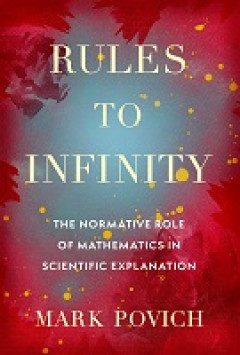
E-book Rules to Infinity: The Normative Role of Mathematics in Scientific Exp…
One central aim of science is to provide explanations of natural phenomena. What role(s) does mathematics play in achieving this aim? How does mathematics contribute to the explanatory power of science? Rules to Infinity defends the thesis, common though perhaps inchoate among many members of the Vienna Circle, that mathematics contributes to the explanatory power of science by expressing conce…
- Edisi
- -
- ISBN/ISSN
- 9780197679012
- Deskripsi Fisik
- 336 halaman, ilus.
- Judul Seri
- -
- No. Panggil
- 121.4 POV r
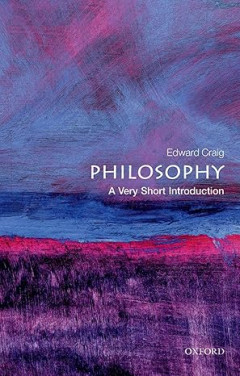
E-book Philosophy: A Very Short Introduction
How ought we to live? What really exists? How do we know? This book introduces important themes in ethics, knowledge, and the self, via readings from Plato, Aristotle, Descartes, Hegel, Darwin, and Buddhist writers. It emphasizes throughout the point of studying philosophy, explains how different areas of philosophy are related, and explores the contexts in which philosophy was and is studied.
- Edisi
- -
- ISBN/ISSN
- 9780192854216
- Deskripsi Fisik
- 145 halaman
- Judul Seri
- -
- No. Panggil
- 101 CRA p
E-book Dark Skies : Places, Practices, Communities
A fascination with the night sky is integral to the story of what it is to be human. The history of our relationship with dark skies is diverse and rich, a connection across space and time that has shaped and been shaped by society, culture, and reli-gion, as well as science. Beyond the astronomical, scientific understandings about the universe, the stars, planets, and moon have proved inspirat…
- Edisi
- -
- ISBN/ISSN
- 9781003408444
- Deskripsi Fisik
- 294 hlm
- Judul Seri
- -
- No. Panggil
- 150 ASF d
E-book Humane Autonomous Technology: Re-thinking Experience with and in Intel…
This open access book takes a human-focused multidisciplinary look at the ways in which autonomous technology shapes experience, affecting human lives and ways of working in settings ranging from the arts, design, and service to maritime and industry. The book focuses on the humane, observing how technology can be designed and implemented in an ethical, human-centered way. Chapters in this book…
- Edisi
- -
- ISBN/ISSN
- 9783031665288
- Deskripsi Fisik
- 349 halaman, ilus.
- Judul Seri
- -
- No. Panggil
- 153 ROU h
E-book Emotional Drivers of Innovation : Exploring the Moral Economy of Proto…
In the ethnographical examination of entrepreneurial-creative places such asmakerspaces, incubators, or living labs, I frequently encountered assertions andexplanatory patterns imbued with emotion. Interestingly, these narratives oftenseem to evade a conscious acknowledgement of their emotional nature. Instead,participants describe experiences asmagical moments, visions of a brighter future,afl…
- Edisi
- -
- ISBN/ISSN
- 9783839471470
- Deskripsi Fisik
- 207 hlm
- Judul Seri
- -
- No. Panggil
- 128.37 SOR e
E-book Emotion, Reason and Action in Kant
Th is is a book about practical reason, action, and emotion in Kant. My aim is to answer what is the real importance of emotion for Kant. I will try to show that Kant had considerable views about emotions and that he was not blind to their importance in action in general. My object is not moral action, but action in general, including weak and even evil ones. My purpose is to show that Kant de…
- Edisi
- -
- ISBN/ISSN
- 9781350078376
- Deskripsi Fisik
- 221 hlm
- Judul Seri
- -
- No. Panggil
- 142 BOR e

E-book Self-Help in the Digital Age: TED Talks, Speculative Fiction, and the …
In an age where science and technology hold sway and the humanities face a crisis, this book explores the evolving role of literature. It delves into how American self-help culture shapes contemporary ideals of success, mindfulness, and happiness, with a particular focus on its influence in science communication, notably in TED talks. Moreover, it underscores the enduring relevance of literatur…
- Edisi
- -
- ISBN/ISSN
- 9783111388267
- Deskripsi Fisik
- De Gruyter
- Judul Seri
- -
- No. Panggil
- 150.1 FIL s
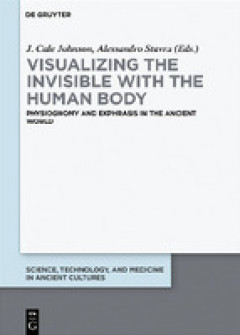
E-book Visualizing The Invisible with The Human Body
Physiognomy and ekphrasis are two of the most important modes of description in antiquity and represent the necessary precursors of scientific description. The primary way of divining the characteristics and fate of an individual, whether inborn or acquired, was to observe the patient’s external characteristics and behaviour. This volume focuses initially on two types of descriptive literatur…
- Edisi
- -
- ISBN/ISSN
- 9783110642681
- Deskripsi Fisik
- 509 halaman
- Judul Seri
- -
- No. Panggil
- 138 JOH v
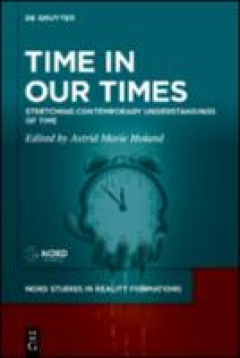
E-book Time in Our Times: Stretching Contemporary Understandings of Time
What is happening to perceptions of time, durability and reality in the 21th century? This anthology explores a diversity of uncommon insights about time, as seen from our historical and geographical standpoint. It sheds new light on how construction, perception and regulation of time influences a person’s whole being in the world, collectively and individually, in the short and long run, fro…
- Edisi
- -
- ISBN/ISSN
- 9783111428970
- Deskripsi Fisik
- 357 halaman
- Judul Seri
- -
- No. Panggil
- 115 HOL t

E-book The Global Wireless: Transnational Radiotelegraphy and Its Disruption …
The Global Wireless charts a history of wireless beginning in the 1910s, when it was used as a tool for global communication, and ending as it declined and slowly fell from view after World War I. Examining the political negotiations and international communication networks, the book demonstrates how a wireless technology had already spread around the globe a century ago and prompted a radical …
- Edisi
- -
- ISBN/ISSN
- 9783111202327
- Deskripsi Fisik
- 249 halaman, ilus.
- Judul Seri
- -
- No. Panggil
- 172.4 RIK t
E-book Security in a Small Nation : Scotland, Democracy, Politics
Questions about ‘security’ provide a lens that brings issues of national independence into sharp focus. In the first instance, security concerns the ability of a state to protect its inhabitants from danger. The idea that security is the first responsibility of government has long been a political mantra. But choosing strategies to ensure a country’s eff…
- Edisi
- -
- ISBN/ISSN
- 9781783742707
- Deskripsi Fisik
- 254 hlm
- Judul Seri
- -
- No. Panggil
- 172.2 ATK s
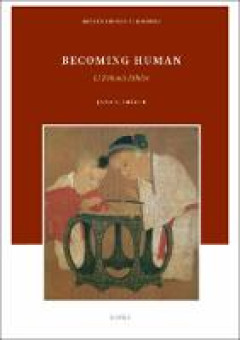
E-book Becoming Human: Li Zehou's Ethics
The book Becoming Human: Li Zehou’s Ethics offers a critical introduction and in-depth analysis of Li Zehou’s moral philosophy and ethics. Li Zehou, who is one of the most influential contemporary Chinese philosophers, believes that ethics is the most important philosophical discipline. He aims to revive, modernize, develop, and complement Chinese traditional ethics through what he calls �…
- Edisi
- -
- ISBN/ISSN
- 9789004423664
- Deskripsi Fisik
- 347 halaman, ilus.
- Judul Seri
- -
- No. Panggil
- 170.0 ROS b
E-book Islamic Sensory History: Volume 2: 600–1500
Islamic Sensory History, Volume 2: 600–1500 presents a selection of texts translated into English from Arabic and Persian. These selected texts all offer illustrative engagements with issues related to the sensorium in different times, places, and social milieus throughout the early and medieval history of Islamic societies. Each chapter is prefaced by an introductory essay by the translator,…
- Edisi
- -
- ISBN/ISSN
- 9789004515932
- Deskripsi Fisik
- 617 halaman, ilus.
- Judul Seri
- -
- No. Panggil
- 152 BUR i
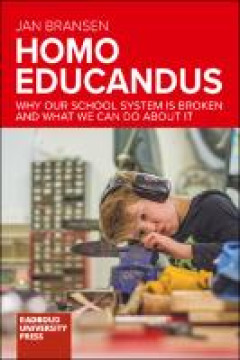
E-book Homo Educandus: Why Our School System is Broken and What We Can Do Abo…
Linnaeus, the Swedish taxonomist, was wrong when he named our species Homo sapiens, i.e. wise man. We are not. We do too many senseless, destructive and irresponsible things to deserve that label. Actually, we need to be educated. Fortunately, we can be educated. We can transform ourselves. We are Homo educandus. Sadly, our current school system is broken. In fact, it does not support education…
- Edisi
- -
- ISBN/ISSN
- 9789083178905
- Deskripsi Fisik
- 246 halaman, ilus.
- Judul Seri
- -
- No. Panggil
- 150.0 BRA h
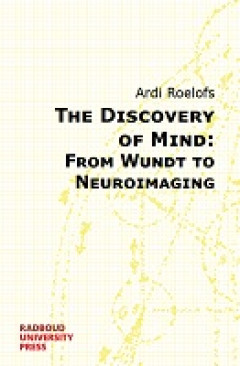
E-book The Discovery of Mind: From Wundt to Neuroimaging
This book presents a concise history of the scientific discovery of the mind. Although people have speculated about the nature and functioning of their minds for thousands of years, it was only about 200 years ago that they replaced the philosophical armchair with the laboratory and began to investigate the mind scientifically. Surprisingly, the work of one of the founders of scientific psychol…
- Edisi
- -
- ISBN/ISSN
- 9789493296794
- Deskripsi Fisik
- 237 halaman, ilus.
- Judul Seri
- -
- No. Panggil
- 128.2 ROE t
 Karya Umum
Karya Umum  Filsafat
Filsafat  Agama
Agama  Ilmu-ilmu Sosial
Ilmu-ilmu Sosial  Bahasa
Bahasa  Ilmu-ilmu Murni
Ilmu-ilmu Murni  Ilmu-ilmu Terapan
Ilmu-ilmu Terapan  Kesenian, Hiburan, dan Olahraga
Kesenian, Hiburan, dan Olahraga  Kesusastraan
Kesusastraan  Geografi dan Sejarah
Geografi dan Sejarah